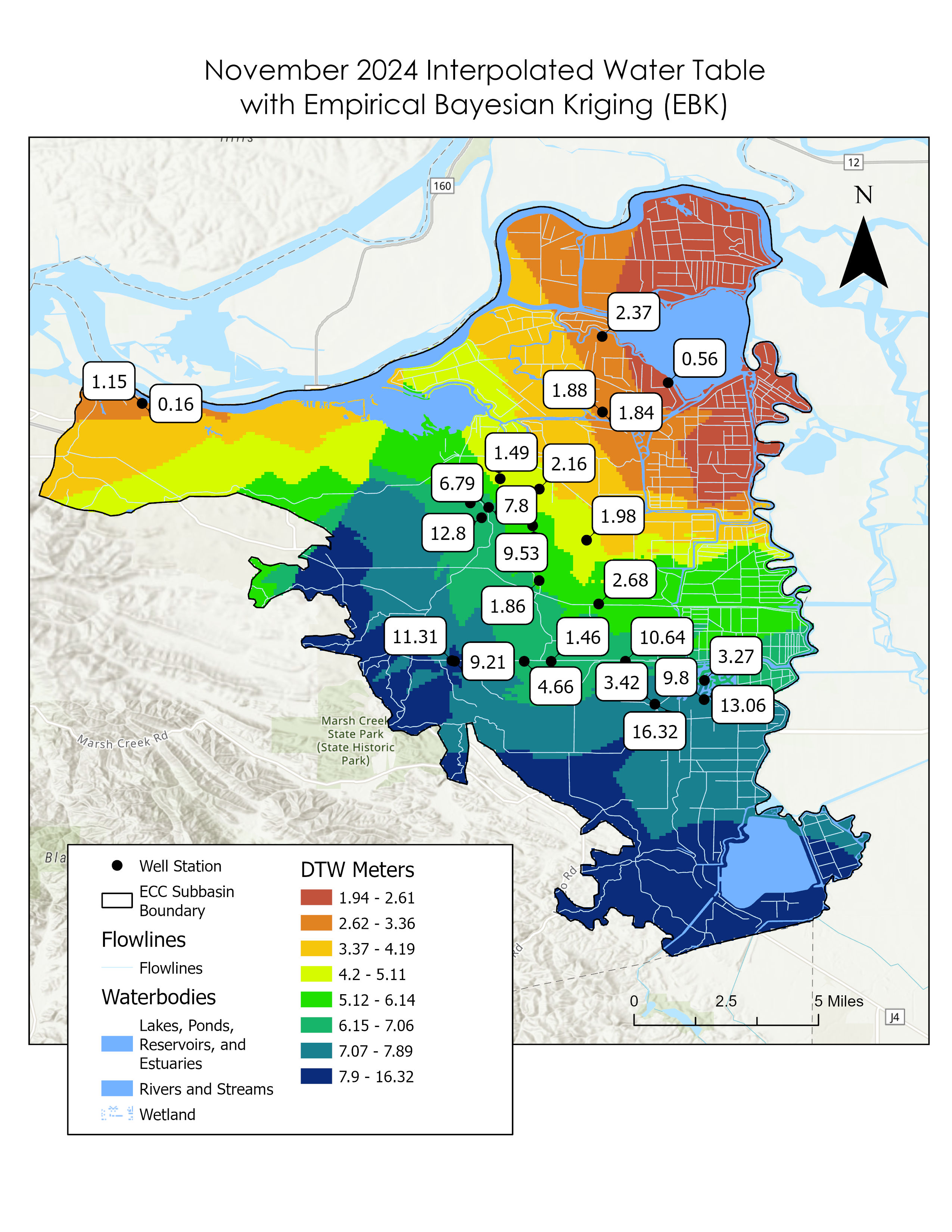Hydrogeologic GIS Modeling of East Contra Costa Groundwater Subbasin

Abstract
Groundwater is a vital resource for agricultural, environmental, and urban sustainability, particularly in California, where over 500 aquifer basins support diverse communities and ecosystems. The East Contra Costa (ECC) Groundwater Subbasin is a critical component of this system, yet it faces significant challenges, including groundwater depletion, overdraft, water diversions, urban development, and emerging risks from climate change. This study investigates the hydrogeologic dynamics of the ECC Subbasin using spatial modeling and analysis to assess these challenges. The research objectives were threefold: (1) to evaluate spatial interpolation methods for water table mapping, (2) to analyze chloride concentration trends across the subbasin, and (3) to assess the potential impacts of sea-level rise (SLR) on groundwater emergence. Depth-to-water measurements from April and November 2024, chloride concentration data from 15 municipal wells, and SLR projections of 1, 2, and 3 feet (0.3m, 0.6m, 0.9m) were integrated into a Geographic Information System (GIS) for analysis. Empirical Bayesian Kriging (EBK) was identified as the most robust spatial interpolation method, providing the lowest RMSE and ME water table interpolations for both time periods. Results revealed a consistent increase in chloride concentrations over time, particularly in wells closest to the Delta, with some wells approaching the Maximum Contaminant Level (MCL) of 250 mg/L. Sea-level rise projections indicated potential groundwater emergence in low-lying areas, posing potential risks to infrastructure and ecosystem health. These findings underscore the need for targeted monitoring, sustainable groundwater management, and proactive adaptation strategies under California's Sustainable Groundwater Management Act (SGMA). This study contributes to understanding the ECC Subbasin's hydrogeologic complexities and provides a foundation for deeper research in groundwater dynamics and management, supporting the long-term resilience of this critical resource.